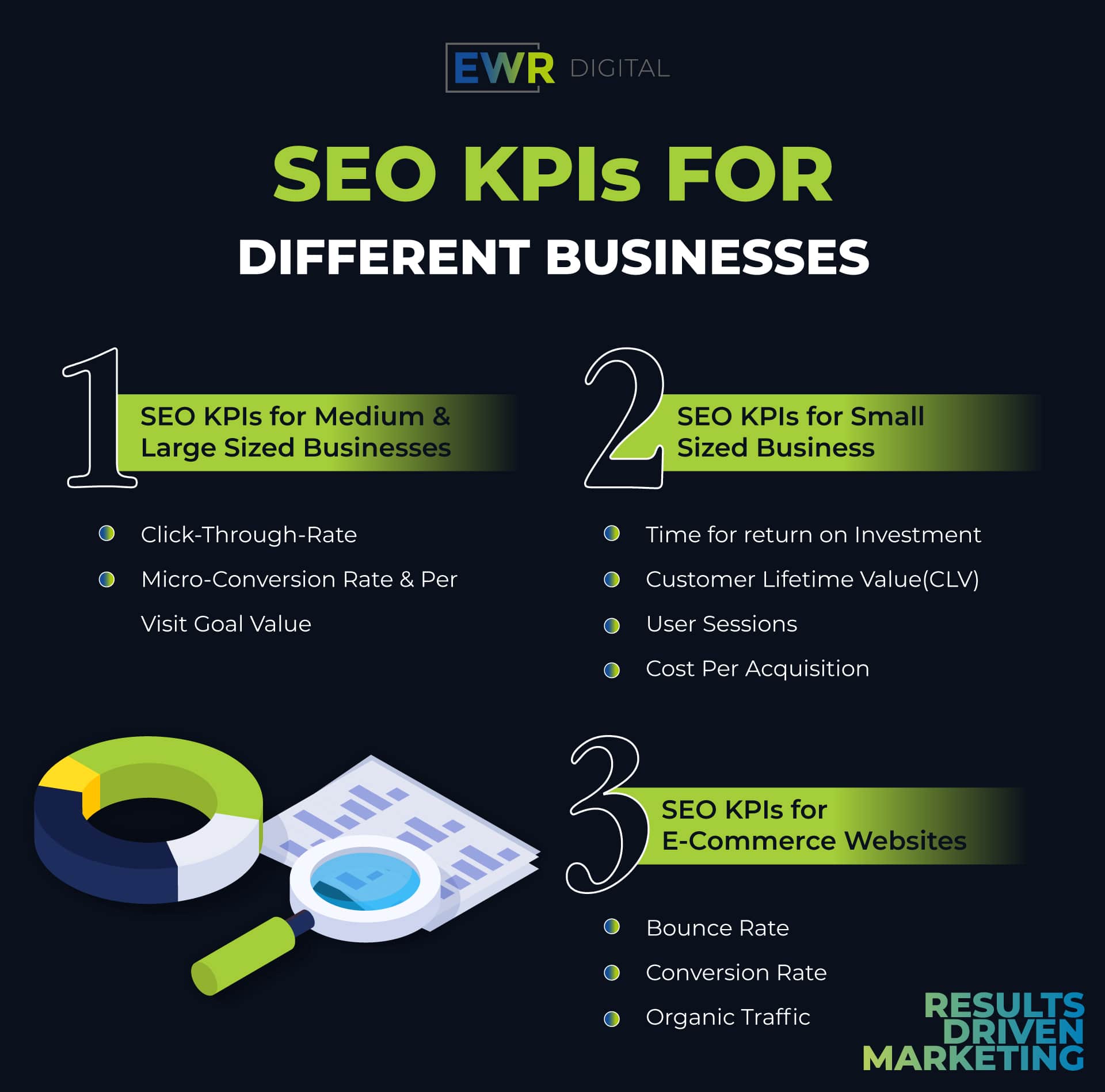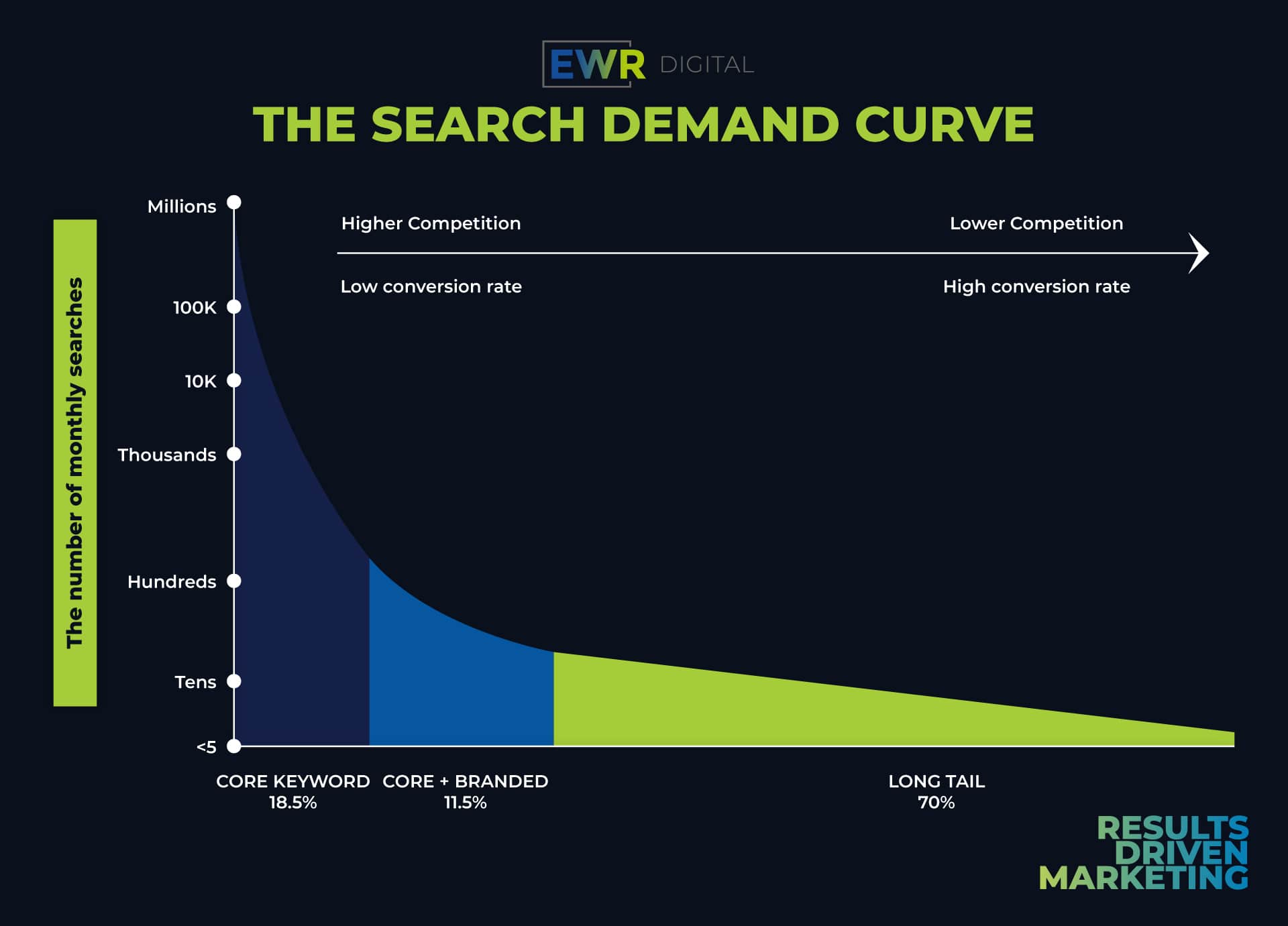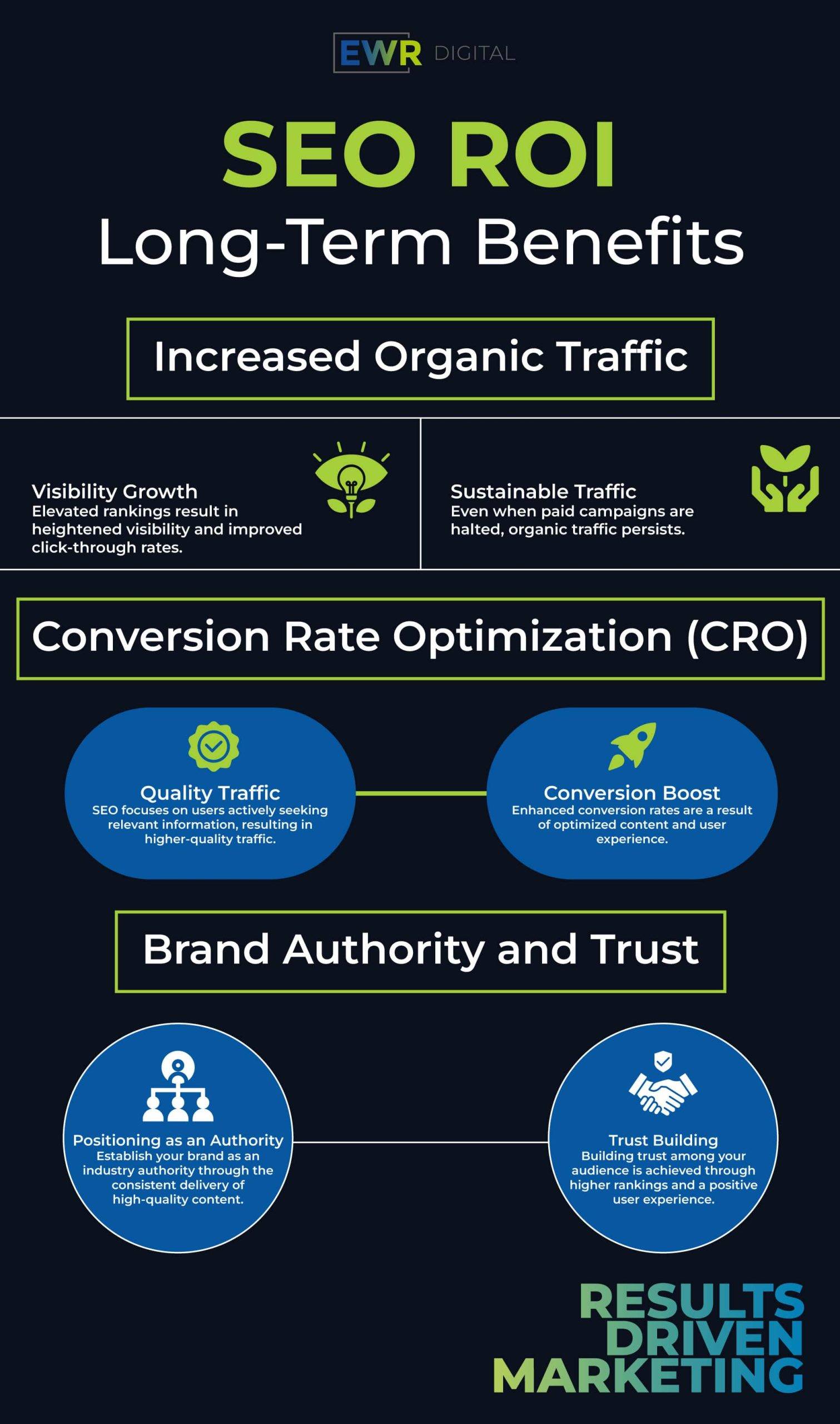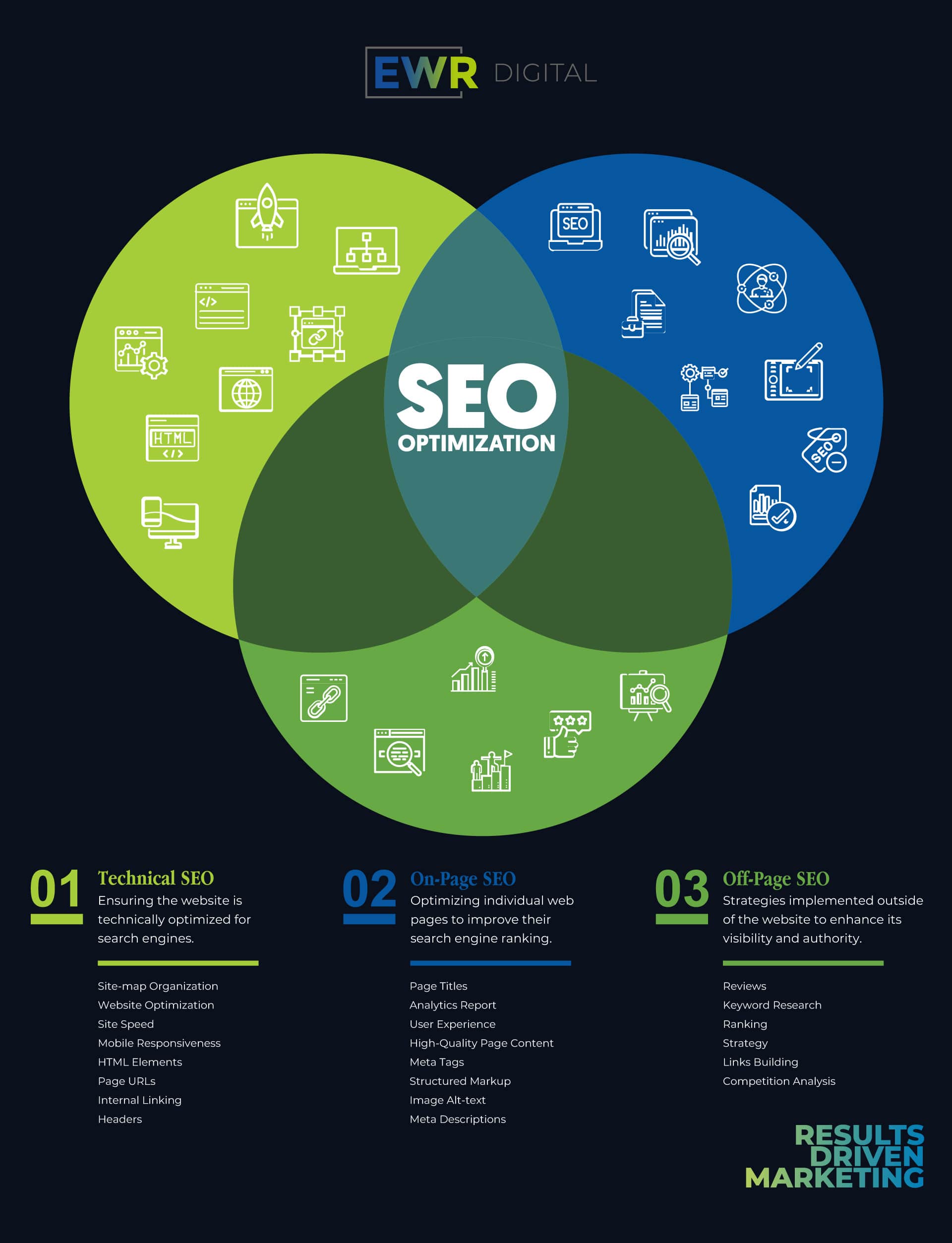Optimizing Your Online Presence: Unveiling the Power of Enterprise SEO
SEO stats show that Google uses over 200 factors when ranking websites with their algorithm. Thanks to this, it’s not enough to press play on a marketing strategy or a website, particularly when it comes to large enterprises. As marketers, it can be tempting to think that Google and other search engines will automatically favor large sites and big brands over small ones. However, this is not the case. It’s equal-opportunity when it comes to ranking first on the search engine giants. Additionally, the ranking of extensive sites and large businesses can suffer due to these pages’ complexity. With big sites comes more pages, so SEO becomes more complex, and there’s more room for errors to creep in. What’s the solution? Effectively implemented enterprise SEO.
Big businesses and websites use SEO to get into the top search spots and streamline marketing efforts. Without SEO in place, these operations are in danger of losing out to smaller sites thanks to a lack of cohesion in their marketing efforts.
If your company is yet to leverage the efficiencies and power of corporate SEO, we advise that you keep reading. Because we are about to do a deep dive on what SEO is and why it’s essential for certain types of businesses.

Enterprise SEO Defined
Enterprise SEO incorporates the common strategies of basic SEO. However, it goes a step further.
At a broad level, corporate SEO does this by tieing together the goals of marketing, web development, user experience, and branding departments. Besides uniting the common goals of these departments, SEO also focuses on page template creation. Through this, SEO strategies can deploy semi-automated on-page SEO.
Another defining aspect of enterprise SEO is the creation of hierarchical keyword targeting. SEO strategies often target high competition keywords. At the same time, they also strategically go after longer tail keywords. This is done by following an organized and hierarchical keyword plan.
By enhancing workflow management, content distribution strategies, cross-departmental collaboration, and implementing automation, SEO can effectively promote large sites searching for scale like many SaaS Companies.

Enterprise SEO vs. General SEO
Now that we have taken a look at the basic elements of enterprise SEO, how does it compare to general SEO?
As mentioned above, general SEO forms a part of enterprise SEO. However, SEO goes beyond simply optimizing website speed and onsite SEO. Instead, the practices found in general SEO are tweaked and built upon.
Enterprise SEO differs from general SEO in several key aspects:
- Scale: Enterprise SEO is focused on large-scale operations, typically involving large websites with numerous pages and complex structures. General SEO, on the other hand, is applicable to smaller websites and businesses with fewer pages and simpler structures. Enterprise SEO requires strategies that can be implemented at scale, taking into account the specific challenges and requirements of managing a large website.
- Technical complexity: While general SEO involves technical optimization, enterprise SEO often deals with more intricate technical challenges. Large websites may have complex architectures, multiple subdomains, international targeting, and other technical considerations that require advanced technical SEO expertise. Enterprise SEO professionals need to address these complexities to ensure optimal website performance and visibility.
- Stakeholder management: In corporate SEO, there are usually multiple stakeholders involved, including marketing teams, IT departments, content creators, and executives. Coordinating efforts and aligning priorities among these stakeholders becomes crucial for successful enterprise SEO implementation. Effective communication and collaboration are essential to navigate organizational structures and ensure that SEO strategies are integrated throughout the entire enterprise.
- Content strategy: While both general SEO and enterprise SEO focus on content optimization, enterprise SEO often involves managing and optimizing a significant amount of content. B2B enterprises may have extensive product catalogs, resource libraries, case studies, and other content assets. Corporate SEO requires a comprehensive content strategy that addresses the specific needs of the target audience, aligns with business objectives, and leverages keyword research and competitive analysis to drive organic traffic.
- Competitive landscape: In enterprise SEO, the competition is typically more intense. B2B industries often have established players and high competition for keywords and rankings. Enterprise SEO professionals need to conduct in-depth competitor analysis, monitor industry trends, and develop strategies to differentiate their business and outperform competitors in organic search results.
- Data analysis and reporting: Enterprise SEO involves handling large volumes of data, including website analytics, keyword rankings, traffic patterns, conversion rates, and more. Analyzing and interpreting this data is crucial for identifying opportunities, measuring the impact of SEO efforts, and making data-driven decisions. Enterprise SEO requires advanced reporting capabilities and the ability to communicate SEO performance to various stakeholders within the organization.
While general SEO forms the foundation for enterprise SEO, the latter encompasses additional complexities and considerations due to the scale and structure of enterprise-level websites and organizations. Successful enterprise SEO requires expertise in managing technical challenges, stakeholder collaboration, comprehensive content strategies, competitive analysis, and data-driven decision-making.

Keyword Targeting Is More Extensive and Structured
When it comes to keyword targeting, enterprise SEO usually focuses on broader search terms. Let’s look at an example by comparing two sites, A and B.
Site A is an affiliate site for digital cameras. They promote +-17 brands of cameras. They practice regular SEO, and their keywords would be highly specific. Such as ‘Fujifilm X-T4 review”, “Nikon D780 review”, “Nikon D780 vs. Fujifilm X-T4 reviews”, etc.
Site B is a large online electronics seller. They sell most of the popular digital cameras on the market and smartphones, TVs, etc.
Not only do they have a blog, but they also have hundreds of thousands of product pages.
They might target some very specific keywords like site A. However, they will also be after ranking for keywords like “electronics online”, “buy electronics online” ” best tech deals of 2020″, etc.
Site B would likely have a hierarchical format for the links they wish to target.
Automation and Templates Take Center Stage
Besides the range and organization of targeted keywords, enterprise SEO also differs from regular SEO in that there is a lot more focus on automation and templates. Automation and template use helps to cut down on the workload of building and maintaining a mega-site. Additionally, it also helps with brand cohesion, something that can get messy on large platforms.
To get an idea of what this looks like, let’s consider site B again. Site B has thousands and thousands of products. These come from different manufactures and suppliers.
The easiest thing for site B to do when listing a new product is to copy and paste the product information from the supplier or manufacturer onto their site. However, this is not good for SEO as it is duplicate content in Google’s eyes, which is never beneficial and is completely unbranded.
In an enterprise SEO strategy setting, site B would create templates for their product pages. The key information for each product would then be inputted into standardized fields.
To Google, this would likely display as new content. To the consumer, it would come across as branded and cohesive with the rest of the site.
Besides achieving these goals, templates and automation also help to minimize the sheer mountain of repetitive work that +1,000-page sites entail. Imagine manually loading all the product page information on a website of this size? The pure volume of the work can be crippling.
This is why big sites have to hone in on automation techniques where they can.
Besides these main areas of keywords targeting, templates, and automation, SEO also focuses on cohesive campaigns. It does this by creating a specific strategy at the corporate level that connects SEO, content marketing, PRs, and social.
Who Needs Enterprise SEO?
Enterprise SEO is commonly understood to be for big companies. However, this is not entirely accurate. Many big companies may have relatively small and simple websites, consisting of a few pages and basic content types such as press releases and authority content.
Simultaneously, smaller companies that do not necessarily fit into the Fortune 500 category may have extensive sites, housing thousands of pages. These are the sites that typically require SEO strategies.
The basic rule of thumb is that any site with more than 1,000 pages is a candidate for enterprise SEO. However, you might want to implement SEO before hitting this many pages, depending on your goals.
Because enterprise SEO creates cohesion between SEO, branding, content marketing, general marketing, PR, UX, web development, and social media marketing, it could be of benefit even to a smaller site.
Additionally, if you want to grow your site, you might want to look into enterprise marketing ahead of time so that it is already at play when you reach those high page numbers.

Benefits of Enterprise SEO
Now that you know the answer to “what is enterprise SEO?,” what are its main benefits? SEO is a large and complex undertaking, but its rewards are far-reaching.
Here are some examples of the benefits that you can expect to reap from enterprise SEO.
Firstly, enterprise SEO supports and benefits all of an enterprise’s marketing efforts, including offline ones. It also controls and promotes global brand messaging, builds authority, fosters influential partnerships, and results in finely-tuned social messaging.
Besides this, a comprehensive enterprise SEO campaign also targets local marketing through scaled local SEO strategies. According to research, 46% of searches have local intent, making this a powerful SEO component. By leveraging both local and organic search, large sites can target their audiences at all stages of the buyer journey.
In addition to these benefits, enterprise SEO also streamlines the SEO implementation process. This reduces unnecessary task duplication.
Enterprise SEO (Search Engine Optimization) is crucial for B2B (Business-to-Business) businesses for several reasons:
- Increased visibility and brand awareness: Implementing effective SEO strategies helps B2B enterprises improve their online visibility and reach a wider audience. By appearing higher in search engine results pages (SERPs) for relevant keywords, businesses can increase their brand exposure and attract potential customers who are actively searching for their products or services.
- Lead generation and customer acquisition: B2B enterprises often rely on generating high-quality leads to fuel their sales pipeline. SEO plays a significant role in attracting organic traffic from search engines, which can lead to more qualified leads. When potential customers find valuable information, resources, or solutions on a B2B website through SEO-driven content, they are more likely to engage with the company and eventually become customers.
- Building authority and credibility: A strong online presence built through SEO can establish a B2B enterprise as an industry authority. When a business consistently produces high-quality content, optimized for search engines, it enhances its reputation as a trusted source of information and expertise. This credibility can positively influence potential customers’ purchasing decisions, as they are more likely to choose a reputable and knowledgeable business over competitors.
- Long-term growth and cost-effectiveness: SEO is a long-term strategy that can yield sustainable results. By consistently optimizing their website and content, B2B enterprises can achieve higher rankings in search results, which can lead to a steady stream of organic traffic and ongoing business growth. Compared to other marketing channels like paid advertising, SEO can be more cost-effective in the long run, as the traffic generated through organic search does not require direct payment for each visit.
- Competitor advantage: In the B2B landscape, competition can be fierce. Implementing a robust SEO strategy allows B2B enterprises to gain a competitive edge by outranking their competitors in search results. By optimizing their website, content, and technical elements for search engines, B2B businesses can increase their chances of being discovered by potential customers ahead of their competitors, resulting in higher market share and business opportunities.
Overall, enterprise SEO is essential for B2B businesses to improve their online visibility, generate leads, establish authority, achieve long-term growth, and gain a competitive advantage in the market. It helps businesses connect with their target audience, build trust, and ultimately drive business success.
How to Implement Enterprise SEO
There are two main ways that sites and brands can implement enterprise SEO.
They can either hire and train SEO experts within their organization to implement enterprise SEO. Or, they can outsource the function to an SEO company.
Enterprise SEO is a complex, far-reaching, and large undertaking. It requires collaboration across multiple departments as well as strong leadership and experienced talent to implement. Because of this, it is often more effective to turn to SEO companies to outsource the function.
In most organizations that do DIY SEO, web design and marketing departments head up SEO efforts. While this can work for basic SEO strategies, the complexities of thorough enterprise SEO implementation are often outside of these departments’ scope. Interdepartmental collaboration can be especially challenging for one department, such as IT or marketing, to spearhead.
Because of this, in many cases, organizations with big sites will benefit most by taking advantage of outside SEO services.
For those wondering if this is worth the cost, consider this. Survey results reveal that inbound SEO is the highest quality lead source for 60% of marketers. Given that lead generation is the key to increased revenue, powerful and scaled SEO enterprise solutions will more than pay themselves off.
Does Your Organization Need Enterprise SEO?
In order to compete for a place at the top of the search results, large sites have to implement evolved SEO practices. Otherwise, their sheer volume of pages, content, and presence can lose cohesion—and with that—ranking power and brand authority.
If your site or organization has reached the place where its online presence is several thousand pages strong, it’s probably time that you look into enterprise SEO.
While SEO is a big undertaking, it doesn’t have to be complicated.
By leveraging a proven enterprise SEO company’s expertise, you can achieve big results minus the implementation struggles.
Want to start implementing SEO for your brand? If so, find out more about our turney enterprise SEO solutions here for your industry. To get started, reach out, and we will be eager to discuss your platform’s unique needs.

